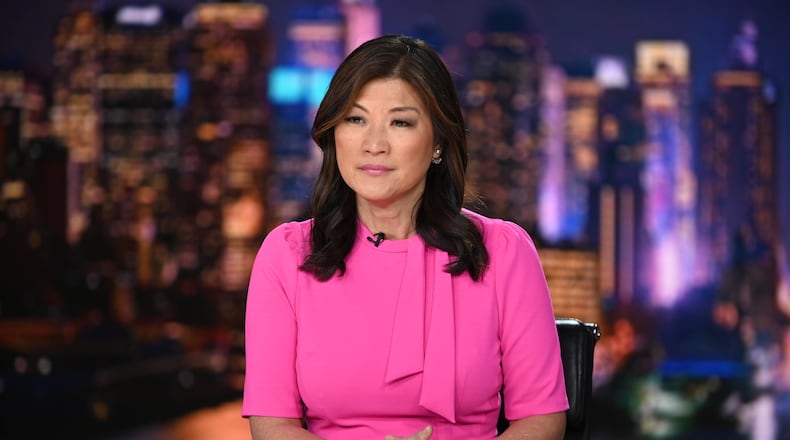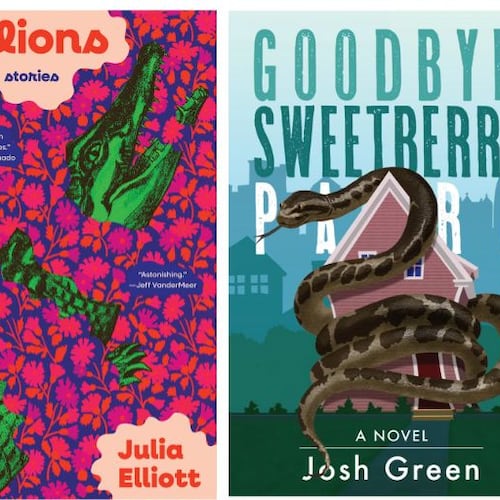Juju Chang, anchor and reporter on ABC’s “Nightline,” was greatly shaken by the Atlanta spa shootings last year and spent several days reporting on the ground.
She taped an hour-long prime-time special for ABC and now a year later came down from New York for another round of follow-up interviews with Atlanta area activists and family members of victims.
Robert Aaron Long, 21, shot up three different spas in metro Atlanta on March 16, 2021, killing eight people, six of whom were Asian women. He told police it was due to his failed efforts to stop his sex addiction and ended up pleading guilty to the Cherokee County murder charges. In July, he was sentenced to life without parole. He faces the death penalty for the murders in Fulton County where he pled not guilty in September.
The whole issue of race was downplayed by the Cherokee police at first, but the situation galvanized the local Asian American Pacific Islander community, who had seen a spike in anti-Asian attacks by people who blamed the COVID-19 pandemic on China, where it started.
“My heart sank in my stomach when I first heard the news,” said Chang, 56, who has been with “Nightline” since 2011. “I had been covering AAPI hate for months. I had done a number of stories on it. So when this happened, it was just depressing.”
But she said she appreciated the insight of local Asian American activist Cam Ashling, who noted that this forced many Asian Americans to speak out in ways they had not before.
“She told me that they aren’t going to stay silent anymore,” Chang said. “There was so much violence happening for months. This was in some ways a dramatic turning point for the AAPI community.”
Credit: ABC
Credit: ABC
Chang said she grew up aware that Asian Americans were taught by their parents to “keep their head down and not cause trouble. There has been a major shift. This is the one area of uplift I see. Young people are standing up on behalf of their elders. This is a generation that has the audacity to believe in equal protection under the law and support their parents who are sometimes reluctant to do that.”
She interviewed Randy Park, whose mother Hyun Jung Grant was killed. He raised $2.9 million on his GoFundMe page from 76,000-plus donors. “People saw his mother’s sacrifice to put food on the table,” Chang said.
She also spoke with Robert Peterson whose mother Yong Ae Yue, was a victim. Peterson is half Korean, half Black. “He feels the racism and the racialization of stereotypes at a lot of different angles,” she said. “He was incredibly insightful.”
Chang herself decided to pursue the topic more aggressively after talking to fellow African American ABC News journalists following the George Floyd protests in 2020. “I’ve known them as colleagues and journalists and friends for 30 years. This is their lived experience,” she said. “They were inspired to share their insights with the public. I modeled their leadership to say this is my lived experience as an Asian American. I can explain why so many Asian Americans were enraged by what the Cherokee County sheriff said.”
Cherokee County Sheriff’s Capt. Jay Baker after the shooting said at a press conference: “I spoke with investigators, they interviewed him this morning. And they got that impression, yes, he understood the gravity of it... And he was pretty much fed up and had been, kind of, at the end of his rope. And yesterday was a really bad day for him, and this is what he did.”
Baker sounded almost sympathetic to the killer, which angered a lot of people in the AAPI community. And the sex addiction excuse seemed incomplete, she said.
“He drove past porn shops and strip clubs to reach the spas,” Chang said. “What does that tell you?”
Chang said Asian stereotypes, even the positive ones, can burden people who don’t fit that stereotype, many of them immigrants just struggling to get by. They suffer silently, invisible to the world. “It also pits minorities against each other,” she said. “And the ‘othering’ of Asians can be used to scapegoat them any time there’s fear and anxiety.”
There is also the complicated issue of spas and how some are indeed used for sexual activities. “There are complicated reasons why they exist,” Chang said. “The hyper sexualization of Asian American women is real. It is really damaging. So much violence against all women is sexualized. Asian American women are attacked far more often than men.”
Credit: ABC
Credit: ABC
WHERE TO WATCH
“Stop the Hate: A Call for Unity”
8:30 p.m. on Wednesday, March 16 on ABC News Live, re-airing at 12:30 a.m. EST and a narrative segment on the anniversary of the spa shootings will air during “Nightline” that same night at 12:30 a.m. on WSB-TV in Atlanta and other ABC affiliates
About the Author
Keep Reading
The Latest
Featured





